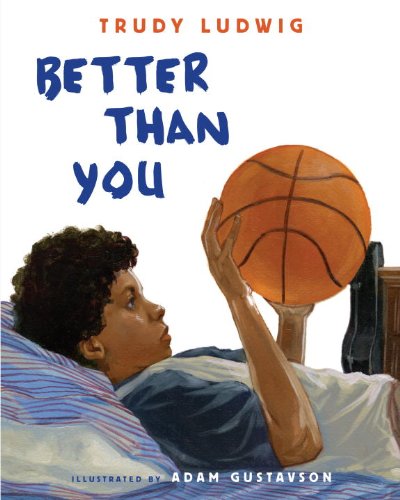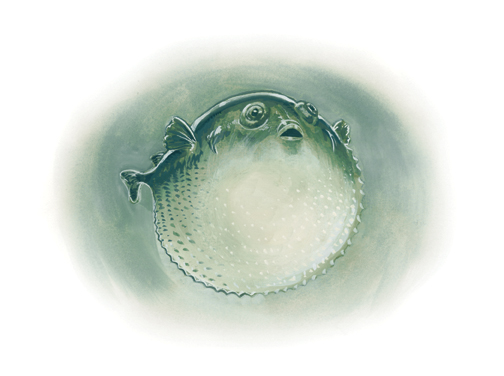REALITY CHECK: “In data from 37,000 college students, narcissistic personality traits rose just as fast as obesity from the 1980s to the present. The rise is accelerating, with scores rising faster in the 2000s than in previous decades.” – Jean Twenge, Ph.D., San Diego State University and author of The Narcissism Epidemicand Generation Me.
Trudy Ludwig’s fabulous book: “Better than You”

I admit it, I’m a huge Trudy Ludwig fan. I own all her books – Just Kidding, Trouble Talk, My Secret Bully, Confessions of a Former Bully – and use them in my workshops with parents and teachers. Trudy‘s new and sensitive book, Better than You, will prove a welcome resource for any parent, teacher, or counselor. It is also the perfect antidote for the troubling trend of kid arrogance.
Jake’s story gives kids insight into what lies beneath the urge to brag and shows them how adopting a “better than you” attitude can break friendships rather than build them.
I highly recommend this glorious read (as well as any other of Ludwig’s fabulous books) and was honored when she asked me if I’d write the foreword for her book. (There wasn’t a second of hesitation!) Here is my foreword, and then I’ve added a few tips to help cure the “Kid Arrogance” epidemic.
From my foreword of “Better than You” by Trudy Ludwig

“There’s a bad attitude spreading among kids these days and it’s got a name: arrogance. No child is born arrogant, yet more kids are bragging about their accomplishments and comparing their possessions and achievements to others’.
This disturbing trend, which I attribute in large part to our competitive, materialistic, and “praise-aholic” culture, is not only unbecoming, it also doesn’t lead to lasting friendships.
The good news is that kids can learn to curb their arrogance, and it’s up to the caring adults in their lives to show them how.
Don’t get me wrong: I’m not belittling any child’s talents or skills. This issue isn’t about what a kid can do or how he looks. It’s about his preoccupation with being center stage, making sure everyone knows just how great he is. And researchers report that this childhood need, if left unchecked, will remain a pattern in adulthood as well.
A child’s sense of self-worth should not be contingent upon earning approval and accolades from others. The best self-esteem is internalized, with the child gaining a sense of pride and inner confidence in accomplishing something for the simple joy of doing it on his own.”
Cures for Kid Arrogance
When parents ask me for advice on how to change their children’s boastful ways, I often recommend these key strategies:
Uncover the Real Source of the Arrogant Attitude
Does your daughter feel that she has to get straight A’s or win a trophy or award to gain your approval or love? Is your son constantly trying to impress his friends because deep down he feels inadequate?
Getting to the root of your child’s problem will help you make the necessary changes to find effective solutions.
Help Kids Recognize the Impact their Attitude Has on Others
Foster empathy and a healthy perspective with role-playing, pointing out nonverbal reactions, and asking how your child would feel if he were in the other person’s shoes.
Focus More on Character, Not Just Performance
Do you stress personal accomplishments (grades, athletic strength, awards, etc.) over character traits (kindness, intelligence, patience, etc.)? Help your child to be more understanding and accepting of her own strengths and weaknesses.
Acknowledge Others’ Accomplishments
Encourage your child to look for the good in others and to make frequent efforts to compliment peers on their particular skills, strengths, or talents.
Reinforce Humility and Acts of Kindness
Temper boasting and bragging by commending personal displays of humility, kindness, and generosity toward others. Also, remind your child to say thank you after someone compliments him.
Read Ludwig’s “Better than You” with Your Kids
After reading Better than You, by Trudy Ludwig, I’d like to recommend another great strategy: read this book to the kids in your life.
I love Better than You because it really zeroes in on the fact that absolutely no good comes out of blatant arrogance. What child wants to hang out with someone like Jake, who makes him feel inferior?
 Trudy’s wonderful story also lets children know that bragging has nothing to do with the kid on the receiving end and everything to do with the kid on the giving end.
Trudy’s wonderful story also lets children know that bragging has nothing to do with the kid on the receiving end and everything to do with the kid on the giving end.
Readers-both young and old-will easily relate to Tyler’s feelings about this friend’s constant one-upmanship tactics. And Uncle Kevin’s marvelous comparison of Jake to a pufferfish will put a knowing smile on any reader’s face.
Better than You cuts right into the heart of arrogance with insight, empathy, and humor. Like Trudy’s other wonderful books, this is a must-read for generating thoughtful discussion about real friendship issues kids face on a daily basis.
Trudy, you did it again! Thank you for writing such inspiring books and for making such a positive difference in the lives of our children.

